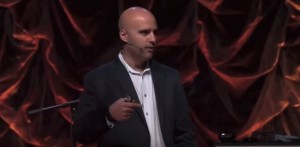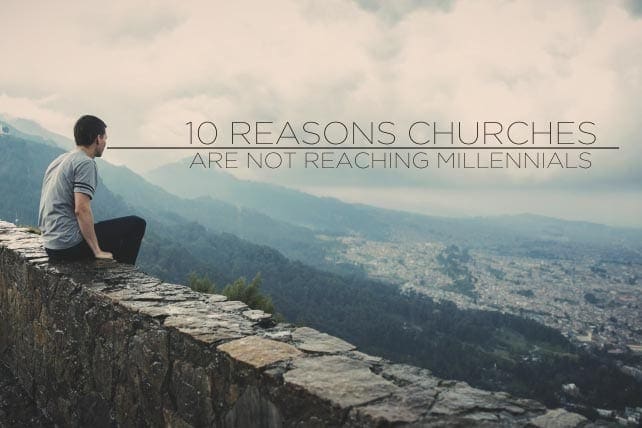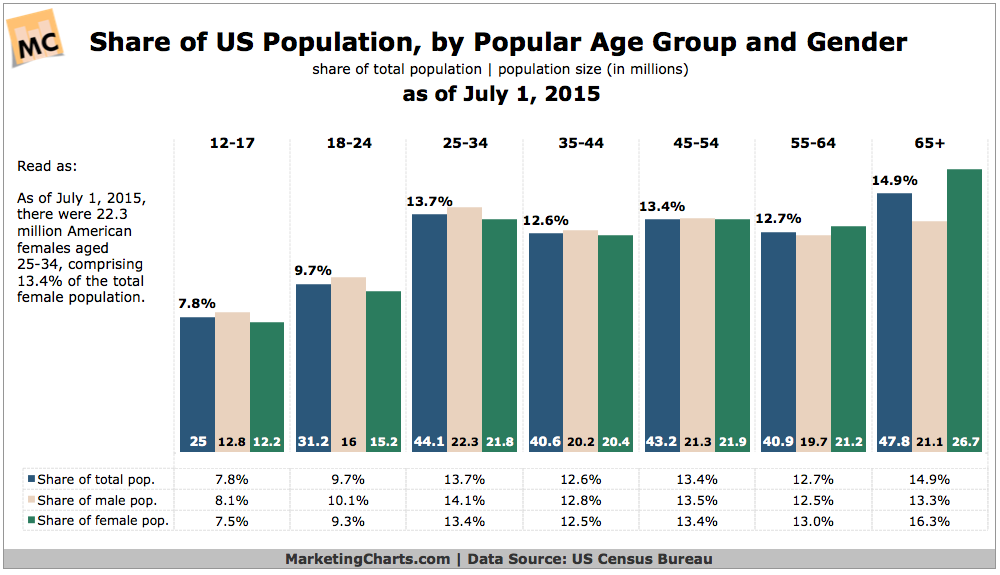I recently saw a few links out about this video, and so I wanted to make a few comments.
The context of the video was for a Church Leaders Conference at Watermark Church. It was written by Micah Tyler, whom you can read more about on his website. Here is the story of the video, taken from a Facebook page for MicahTylerMusic.
“So, this was fun 🙂 I was tasked to stereotype MY generation for the Watermark Community Church Leaders Conference. It was followed up with a talk about acceptance, encouragement, and looking beyond stereotypes. Here WE are in all OUR glory #millennials“
According to Micah, the original purpose of the video was to ask church leaders to drop the stereotypes of Millennials.
Watermark Church also describes the context on their Youtube description of the video:
“This video was a parody that opened a talk at the Church Leaders Conference encouraging people to see past the stereotypes and recognizing the unique potential that millennials have!”
 In the video, Micah did an excellent job portraying Millennials in their regular array of stereotypical descriptors. Micah also did a great job, I believe, of portraying the response of many churches to Millennials. Older generations often poke fun, lament, and avoid emerging adults rather than listen, learn, and serve.
In the video, Micah did an excellent job portraying Millennials in their regular array of stereotypical descriptors. Micah also did a great job, I believe, of portraying the response of many churches to Millennials. Older generations often poke fun, lament, and avoid emerging adults rather than listen, learn, and serve.
Millennials regularly get slammed in the media – here is another example. One of the most well-known controversies was when Time magazine first made millennials front-page news.
The video produced by Micah and Watermark Community Church has now left its original context, and has over 1 million hits on Youtube.
Here is my concern.
Unfortunately, the context of the video (while given on the video page) is rarely, if ever read by the average person. When I first saw the video, I did not understand the purpose, and I looked. Stereotyping generations is unhealthy for the Church. I am not the only one who didn’t understand that it was a parody.
Clearly not everyone who watched the video understood that it was a parody. One viewer of the video states: this song makes me upset. I work 3-4 jobs and don’t live with my parents, but no, I’m the lazy piece of shit…
I am not sure of this man’s religious background, but I do not believe the video sent him a positive message of God’s love.
Unfortunately, some of the appeal of the song (and the reason why people share it) is that people like to mock millennials. Designers of websites also like the traffic that divisive content brings to their organizations. I am sure that this video (although destructive to the body of Christ), can give artists and specific church organizations great publicity.
Here is my request.
I believe that Watermark Church and Micah Tyler should add an explanation to the video from Micah or the church explaining the purpose of the video. I have submitted requests to both the artist and the church. (I will let you know if I hear from them.) This will avoid confusion, and send a better message to those in and out of the church.
While artists and writers cannot control how their work is used, we can do our best to clarify the message that is consistent with our intent.
May the message of the church be clear and convincing to millennials and emerging adults that we love, respect, and want them as partners in the kingdom of God.
 Dr. G. David Boyd is the Founder and Director of EA Resources, a non-profit designed to equip parents and churches to understand emerging adulthood. He is also the founder of EA Network, a national network of those who minister to emerging adults.
Dr. G. David Boyd is the Founder and Director of EA Resources, a non-profit designed to equip parents and churches to understand emerging adulthood. He is also the founder of EA Network, a national network of those who minister to emerging adults.
 Skye is ordained in the Christian & Missionary Alliance, a Protestant denomination established in 1887. He earned a Masters of Divinity degree in 2001 from Trinity Evangelical Divinity School in Deerfield, Illinois.
Skye is ordained in the Christian & Missionary Alliance, a Protestant denomination established in 1887. He earned a Masters of Divinity degree in 2001 from Trinity Evangelical Divinity School in Deerfield, Illinois.






 “Adulthood today lacks a well-defined roadmap”, writes Steven Mintz, in his forthcoming book The Prime of Life. “Today, individuals must define or negotiate their roles and relationships without clear rules or precedents to follow”.
“Adulthood today lacks a well-defined roadmap”, writes Steven Mintz, in his forthcoming book The Prime of Life. “Today, individuals must define or negotiate their roles and relationships without clear rules or precedents to follow”.
 Dr. G. David Boyd is the Managing Director of EA Resources, a non-profit designed to equip parents and churches to minister to the needs of emerging adults.
Dr. G. David Boyd is the Managing Director of EA Resources, a non-profit designed to equip parents and churches to minister to the needs of emerging adults.
 In the video, Micah did an excellent job portraying Millennials in their regular array of stereotypical descriptors. Micah also did a great job, I believe, of portraying the response of many churches to Millennials. Older generations often poke fun, lament, and avoid emerging adults rather than listen, learn, and serve.
In the video, Micah did an excellent job portraying Millennials in their regular array of stereotypical descriptors. Micah also did a great job, I believe, of portraying the response of many churches to Millennials. Older generations often poke fun, lament, and avoid emerging adults rather than listen, learn, and serve. 



 Emerging Adults are not the only ones
Emerging Adults are not the only ones 
 behind. I completely agree with their statement that “the Dones and the almost Dones are the strongest bridge to the Nones.” (137)
behind. I completely agree with their statement that “the Dones and the almost Dones are the strongest bridge to the Nones.” (137)